If BMW i5 is canceled, what does that mean for its electric cars?If BMW i5 is canceled, what does that mean for its electric cars?
When it launched in 2013, the BMW i3 electric car was arguably the most futuristic automobile in mass production anywhere in the world.
Its all-electric powertrain could be ordered with an optional range-extending engine, and it rode on an aluminum chassis topped with a strong but lightweight body shell made of carbon-fiber reinforced plastic.
It was also, for a couple of years, the most energy-efficient car sold in the U.S. by any automaker.
DON’T MISS: 2019 BMW i5 crossover utility vehicle rendered from patent drawings (Oct 2016)
The i3 five-door hatchback was sold under BMW’s new “i” sub-brand for energy-efficient and electric cars, and launched with a far more glamorous and expensive (but lower-volume) sibling, the i8 gull-wing sport coupe.
That plug-in hybrid was notable for its “bird-wing” doors hinged from the windshield pillars, and its multiple drive modes: it could be a short-range electric car, a hybrid on longer trips, or a full-on performance car using the battery provide boost to its turbocharged three-cylinder engine.
We suspect its looks were so stunning that it could have been powered on coal and sold just as well, but that’s a different story.
2016 BMW X5 xDrive 40e, Hudson Valley, NY, Dec 2015
Following the i3 and the i8 came … not much. BMW’s next plug-in cars have been a series of low-range plug-in hybrid versions of its mainstream X5 SUV and 3-Series, 5-Series, and 7-Series sedans.
They’re relatively powerful, relatively fuel-efficient in regular use, but they produced a fair amount of head-scratching among auto writers. And following the daring i3, they have landed with a somewhat muted appeal.
For several years, the rumored followup to the i3 was said to be an electric compact crossover utility vehicle with 200 miles of range that would use the next generation of the same technologies—CFRP body, range-extending engine—but in a far more popular small crossover body.
READ THIS: BMW iNext concept previews electric sedan flagship to come in 2021 (Jun 2016)
Now, according to “multiple sources” cited by BMWblog, the i5 program has been canceled altogether.
If true, that leaves open a question: what is BMW doing in electric cars?
The answer, according to the site, is twofold: focusing on a high-end all-electric luxury sedan previewed by the BMW iNext concept, and otherwise planning on rolling out electric versions of at least one of its mainstream products.
BMW Vision Next 100 ConceptBMW Vision Next 100 conceptBMW Vision Next 100 concept
That would be the next-generation BMW 3-Series, the small sport sedan that remains BMW’s best-selling vehicle globally..
An all-electric BMW 3-Series with a range of 200 miles or more would go head to head with the upcoming Tesla Model 3, scheduled to go into production before the end of this year.
Then an all-electric BMW iNext high-end luxury sedan would presumably face off against the current Tesla Model S or its next-generation successor.
CHECK OUT: Next BMW 3-Series to include all-electric Tesla Model 3 rival: report (May 2016)
In support of the theory that the BMW i5 electric crossover may have been canceled is the absence of any concept versions of such a vehicle.
BMW showed concept versions of what became the i3 for two years before the launch of the production model, which means we’d have expected to see a concept i5 at an auto show this year—or next year at the latest.
The fall auto-show season isn’t on us yet, but no such vehicle appeared at any of the spring shows.
2017 BMW 3-Series
If the BMW i5 has, in fact, been canceled in favor of electrified versions of mainstream BMW models, however, it may indicate that the German maker has decided electric cars are going to become simply another powertrain option.
Rather than making them visually separate and building them with different technologies than its core lineup, it would adapt electric drivetrains into mainstream models the public already knows and buys.
Which is, if you think about it, exactly what Toyota did with its Prius: that car’s innovative hybrid powertrain has now spread across the Toyota lineup, with a hybrid version now offered in virtually every mainstream model it makes.
_______________________________________
Follow GreenCarReports on Facebook and Twitter.
View original article at: “https://www.greencarreports.com//news/1110704_if-bmw-i5-is-canceled-what-does-that-mean-for-its-electric-cars”
Related posts


Electric SUVs: Top 6 Models for Family Trips











